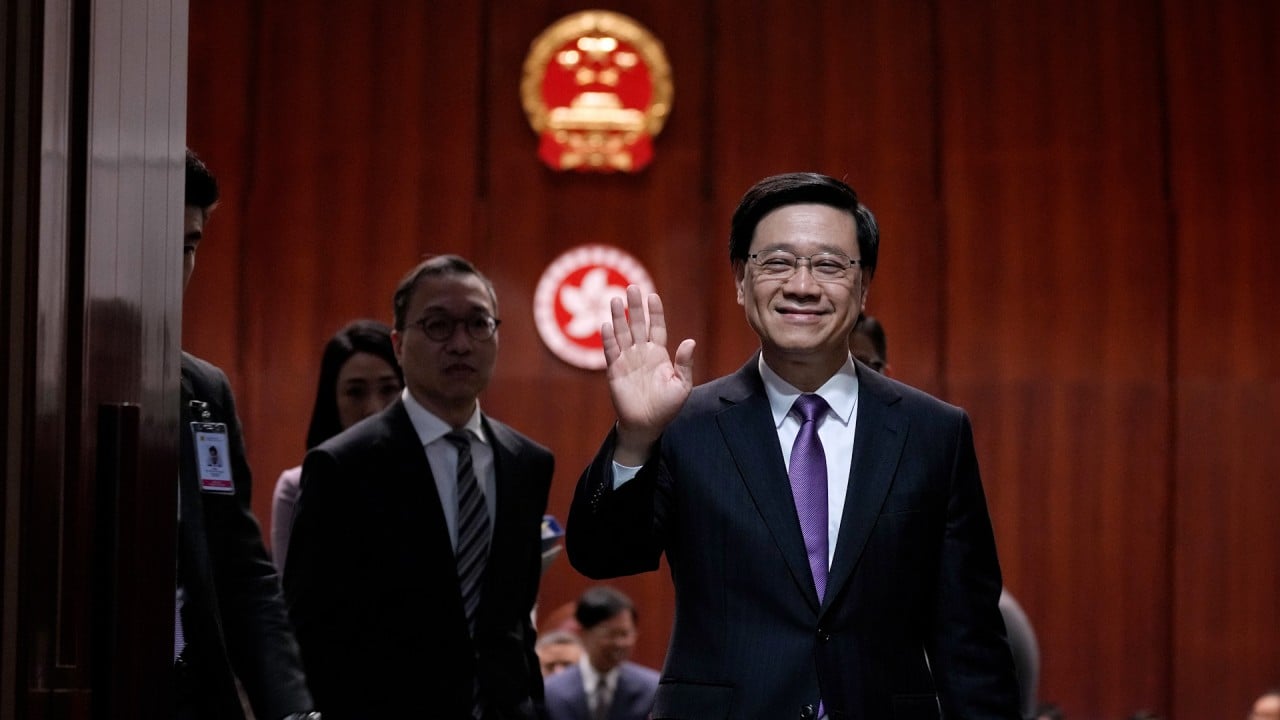Hong Kong’s Article 23 law: end of early release for national security offenders likely to be first clear change when legislation takes effect
The end of early release for those serving a prison sentence for any national security offences will be among the immediate effects of Hong Kong’s Article 23 law as it goes into force on Saturday.
Former media tycoon Jimmy Lai Chee-ying and other activists accused of national security offences in Hong Kong now facing trial were unlikely to get suspended sentences and early release from jail terms if they were convicted, legal experts said.
The enactment of the Safeguarding National Security Ordinance will also have implications for fugitives wanted by the national security police as they could face a list of sanctions once designated by the security chief as an absconder under a new mechanism.
Professor Simon Young Ngai-man, a law professor at the University of Hong Kong (HKU), said the legislation’s sections on prison rules would make things more difficult for those convicted of offences that endanger national security.
“If one is already serving a sentence for a national security offence, unfortunately, the time they need to serve will effectively be extended unless they can demonstrate no risk to national security if released with remission.”
The clauses were among those approved by lawmakers during 12 days of marathon proceedings to quickly introduce the legislation mandated by Article 23 of the Basic Law, the city’s mini-constitution.
‘Historic moment’: Hong Kong passes Article 23 law after marathon session
‘Historic moment’: Hong Kong passes Article 23 law after marathon session
Under the existing rules, prisoners can have a third of their sentence reduced on the grounds of good behaviour.
But the Article 23 law stipulates that a prisoner convicted of national security offences “must not be granted remission” unless the commissioner of correctional services is satisfied the move will “not be contrary to the interests of national security”.
The shake-up extends to those jailed under the Beijing-imposed national security law, such as Leon Tong Ying-kit, the first person to be convicted of inciting secession and terrorism under the legislation in 2021.
Tong is serving nine years in jail for the offences.
Media tycoon Jimmy Lai, who is on trial for three conspiracy charges related to collusion with foreign forces and sedition, as well as 47 opposition figures charged for subversion under the Beijing-imposed law, will also be affected if they are convicted.
HKU scholar Young, before the Article 23 law’s passage, had urged the government to reconsider the “restrictive” measure and allow remission based on good behaviour to encourage “greater faith in the rehabilitative effects of our correctional services”.
Grenville Cross, a former director of public prosecutions, said the changes had merit as some former prisoners in the past had continued to threaten national security after being granted early release, but he stopped short of naming any instances.
“Although nobody wants prisoners to be detained for any longer than is absolutely necessary, there have to be restrictions on people who might abuse their early release from imprisonment,” he told media outlets on Wednesday.
Why is Hong Kong going full speed with its Article 23 security legislation?
Why is Hong Kong going full speed with its Article 23 security legislation?
Legislators during the law’s lightning-fast review process also called for the scrapping of a proposed six-month waiting period after a warrant was issued before the city’s security chief could designate a person as an absconder and impose sanctions.
Once a person has the status of “relevant absconder”, all others will be barred from establishing a joint venture with or leasing immovable property to or from the former.
All permissions and registrations necessary for the absconder to carry on business or employment will be suspended, including any professional qualifications.
As it happened: Hong Kong legislators make history, pass Article 23 security bill
As it happened: Hong Kong legislators make history, pass Article 23 security bill
The Post has filed an inquiry with the Security Bureau on whether and when such specifications will be made upon the law’s enactment.
Thirteen opposition figures are currently wanted by Hong Kong police over alleged national security violations.
Activist Agnes Chow Ting, who is suspected of colluding with foreign forces, also breached her bail conditions in December after failing to return from Canada.
Lawmaker Eunice Yung Hoi-yan, daughter-in-law of one of the wanted activists, Elmer Yuan Gong-yi, has told the Post that she was not in the least worried that the law would have any impact on her or her family, as it had clearly defined clauses.
“I believe my husband can handle the relationship with his father well, and [my husband] is very responsible for his family,” she said.



